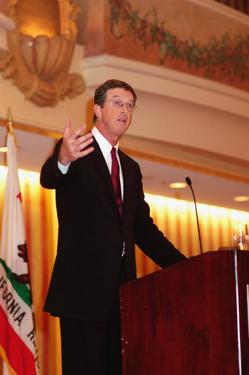(p. 156) Because it proceeds by competitively destroying old businesses and hence the existences dependent upon them, there always corresponds to it a process of decline, of loss of caste, of elimination. This fate also threatens the entrepreneur whose powers are declining, or his heirs who have inherited his wealth without his ability. This is not only because all individual profits dry up, the competitive mechanism tolerating no permanent surplus values, but rather annihilating them by means of just this stimulus of the striving for profits which is the mechanism’s driving force; but also because in the normal case things so happen that entrepreneurial success embodies itself in the ownership of a business; and this business is usually carried on further by the heirs on what soon become traditional lines until new entrepreneurs supplant it. An American adage expresses it: three generations from overalls to overalls. And so it may be. Exceptions are rare, and are more than compensated for by cases in which the descent is still faster. Because there are always entrepreneurs and relatives and heirs of entrepreneurs, public opinion and also the phraseology of the social struggle readily overlook these facts. They constitute “the rich” a class of inheritors who are removed from life’s battle. In fact, the upper strata of society are like hotels which are indeed always full of people, but people who are forever changing.
Source:
Schumpeter, Joseph A. The Theory of Economic Development: An Inquiry into Profits, Capital, Credit, Interest, and the Business Cycle. Translated by Redvers Opie. translation of 2nd German edition that appeared in 1926; translation first published by Harvard in 1934 ed. London: Oxford University Press, 1961.




